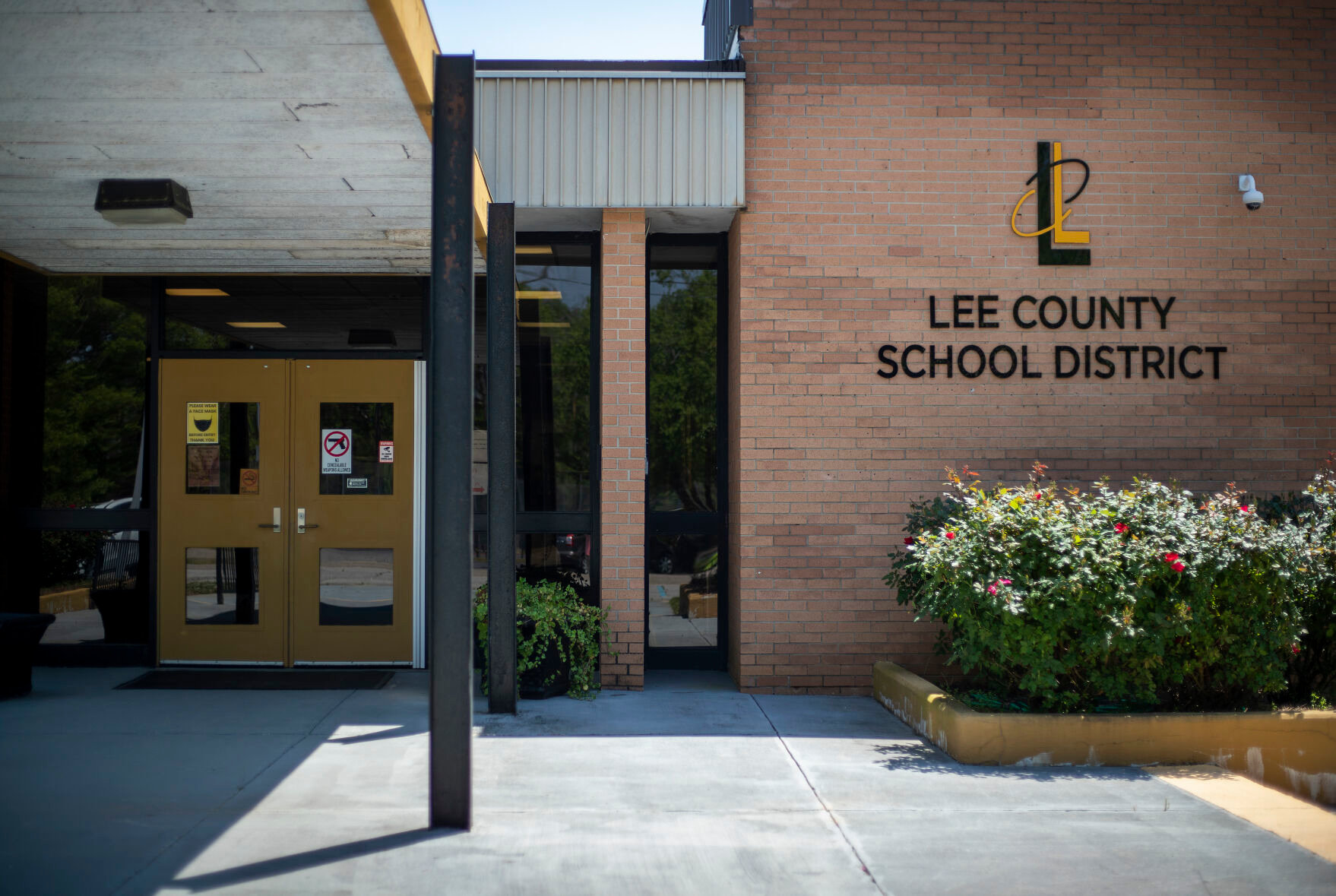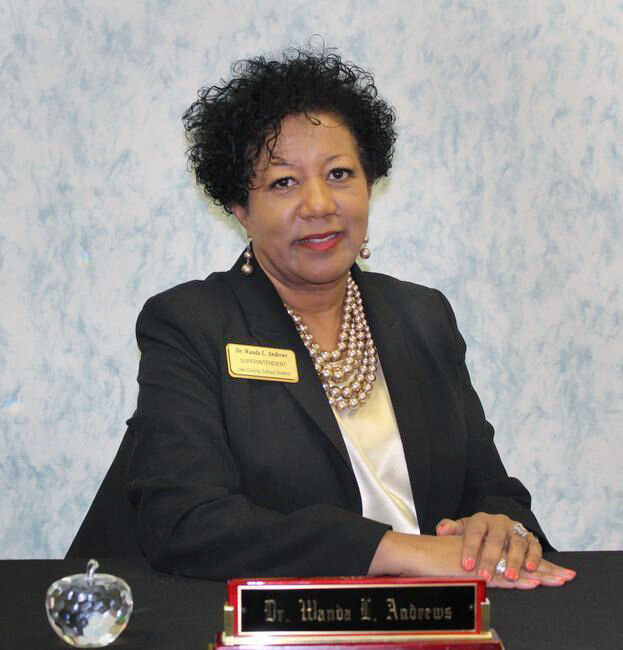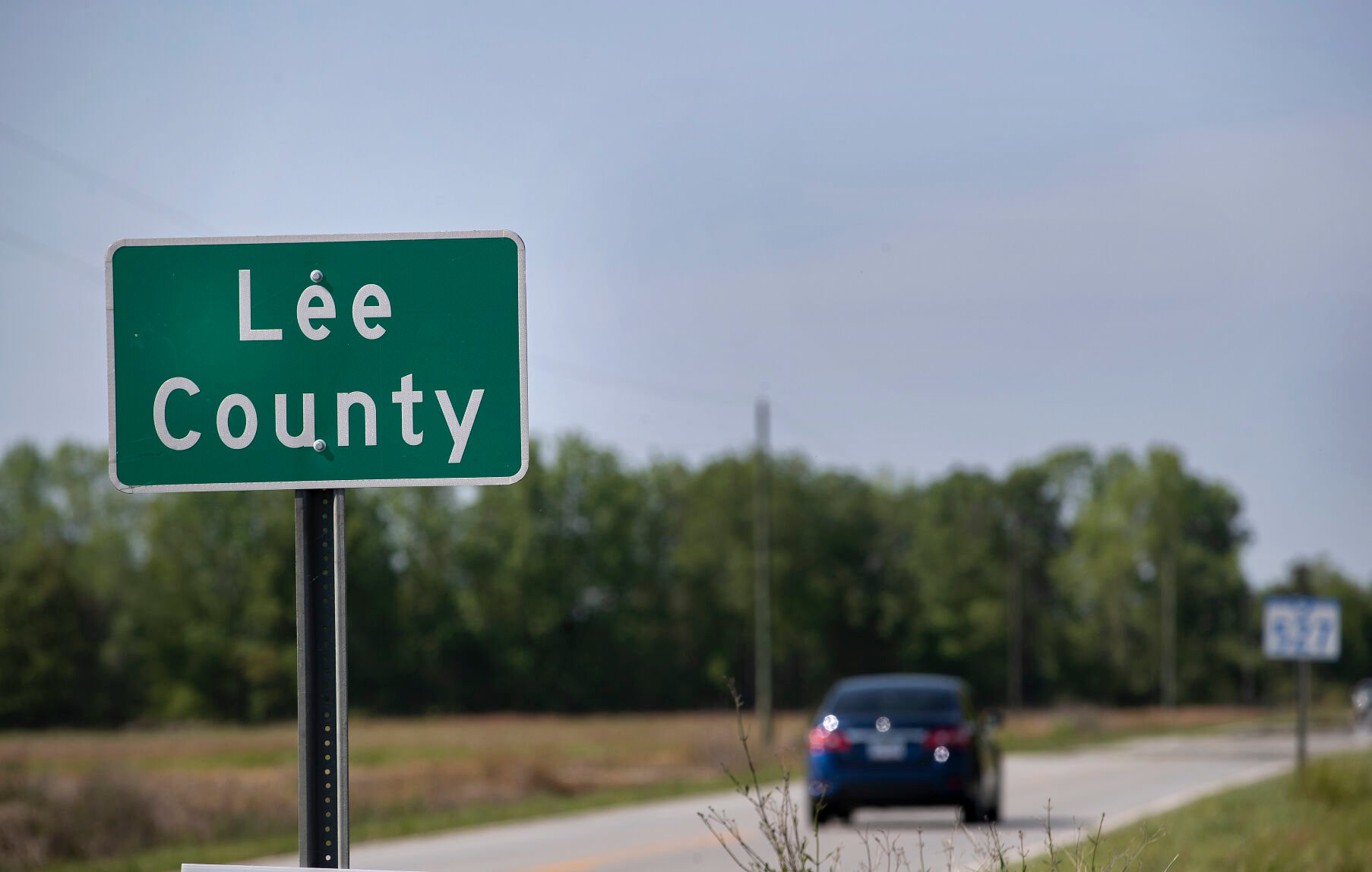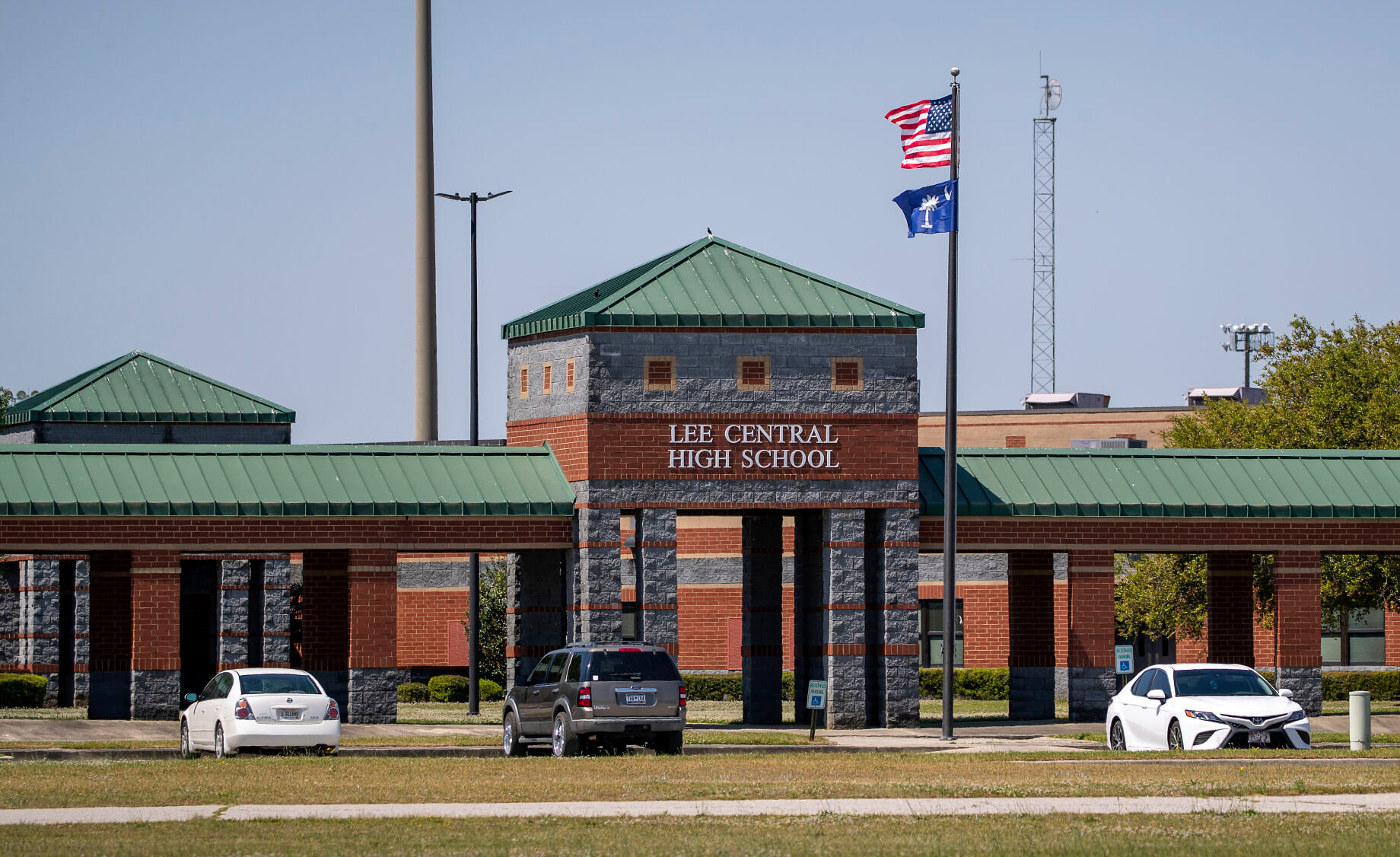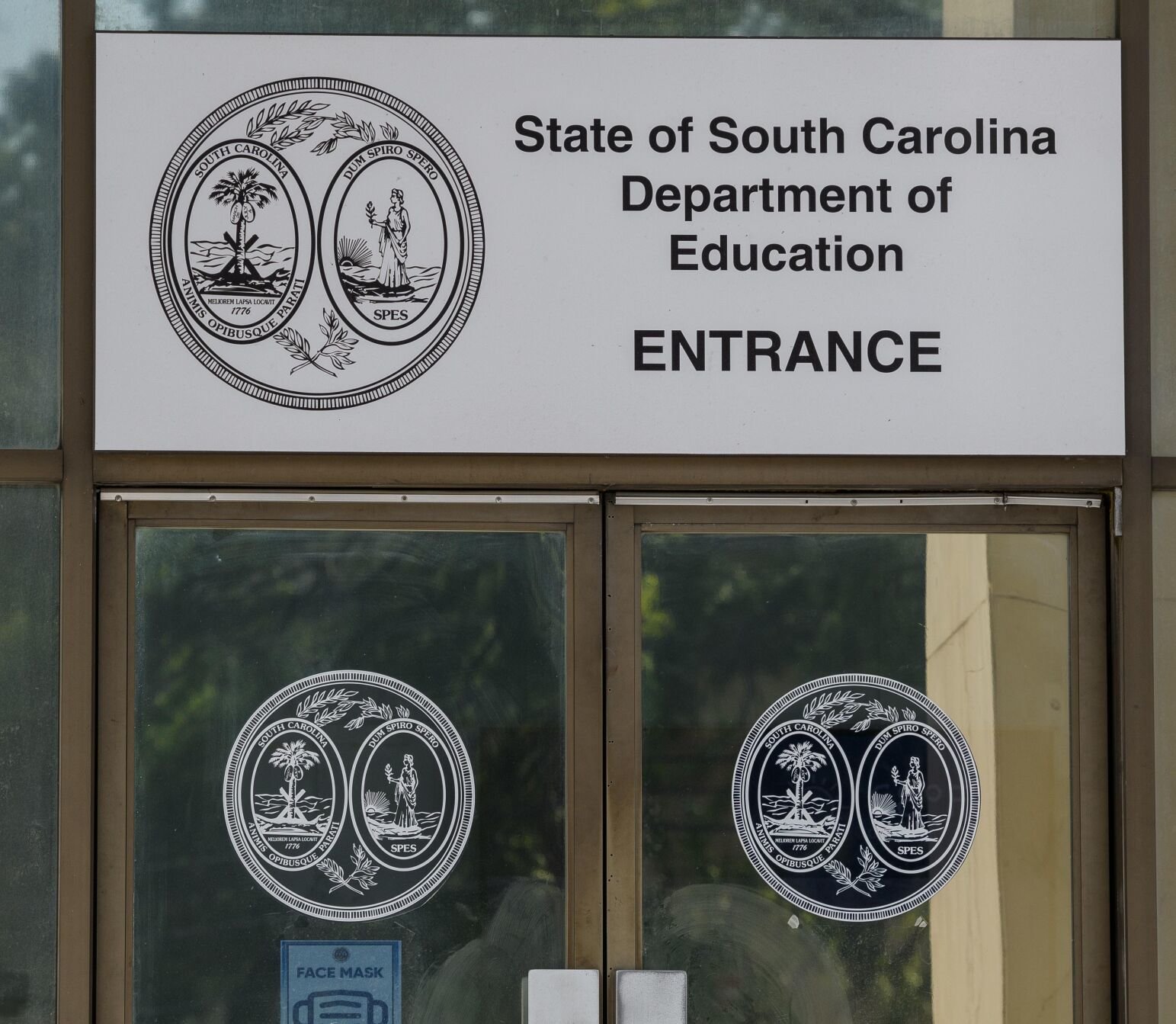Lee County School District bought spy cameras and falsified records. Its leader kept her job.
Editor’s Note: This story is part of Uncovered, a yearlong project in which The Post and Courier is partnering with community newspapers across South Carolina to investigate potential abuses of power, misuses of taxpayer dollars and reports of misconduct. The Sumter Item is one of 15 news outlets participating. For past stories and more information on Uncovered, visit www.postandcourier.com/uncovered.
shobbs@postandcourier.com
tmoore@postandcourier.com
Under Superintendent Wanda Andrews, the Lee County School District installed spy cameras in employees’ offices and falsified state-mandated reports. An investigation turned up evidence so compelling that the state Department of Education and an independent reviewer said she deserved to be taken off the job.
Yet the panel that oversees South Carolina educators allowed her to stay put with little consequence. And her bosses on the local school board rejected calls for her removal.
Andrews’ disciplinary case shows how superintendents in South Carolina can avoid the kinds of punishment that are routinely handed down to the state’s front-line teachers. Andrews kept her job even after the Education Department detailed an exhaustive list of allegations against her in 2019 and said she deserved to be removed from the profession for at least three years.
Instead, the State Board of Education, which holds the power to discipline educators, gave Andrews a public reprimand. It was the equivalent of a note in her personnel file. The board did not explain its rationale for declining to suspend her license, and current and former board members would not discuss the decision.
This examination of Andrews’ disciplinary case is the latest installment in Uncovered, a yearlong investigation in which The Post and Courier has teamed up with community newspapers to expose government misconduct across South Carolina. So far, reporters have found a void in accountability in the state that has led to excessive spending, nepotism and conflicts of interest.
The Post and Courier obtained more than 1,000 pages of documents that shed new light on the findings of the state’s investigation into Andrews and other issues. Those include the failure of the district to comply with the state’s open-records law, and an ongoing criminal investigation into consulting jobs that Andrews and another superintendent had with each other’s district — an arrangement that netted them both thousands of dollars in extra pay.
Andrews, who retired late last year, testified that her only missteps were making bad hires and trusting “people who couldn’t be trusted.” Andrews told a reporter in an interview that she didn’t deserve to be investigated or receive a reprimand.
“This just is baffling to me, and terribly embarrassing and terribly hurtful,” she said.
But the handling of Andrews’ case was typical of how the State Board has declined to severely punish local superintendents, a Post and Courier investigation found. In the past decade, seven South Carolina superintendents have had cases make their way in front of the board. Those include one who told an employee she’d “slit her throat” at a staff meeting if she dared talk to the local school board. Another used district time to travel to paid speaking engagements in places like Chicago and California, in violation of the state's ethics laws.
Only once have officials handed out discipline more serious than a reprimand. In that case, a district leader charged with stealing more than $500,000 of public money voluntarily gave up his certificate. Meanwhile, the State Board routinely suspends teachers’ licenses for offenses like quitting in the middle of the school year.
The result of the State Board’s passive approach to superintendents is that any chance for discipline is then left up to their bosses: the local school boards. But in many districts, school boards act like they work for the superintendent, not the other way around, said state Sen. Greg Hembree, the chair of the Senate Education Committee.
In Lee County, where candidates nearly always run unopposed, the majority of the district’s seven board members were aligned with their superintendent. One of them was Sanya Moses, who chaired the local school board when Andrews was disciplined. She said the state’s investigation had unfairly targeted Andrews.
“If we felt that our superintendent had engaged in behavior that was not befitting of a superintendent, we would have handled that,” Moses said.
When school boards fail to be assertive, local superintendents can become entrenched, allowing problems to fester, Hembree said.
“The superintendent works for them,” he said. “You’ve got to make sure that’s the culture, that this board is your boss … and we’re going to take you to account.”
Deadline made, deadline missed
The Lee County school board was unanimous when it hired Wanda Andrews in 2013 to be the district’s new superintendent. She had planned for it to be the last stop in her decadeslongcq career as a school teacher and administrator, which included roles in Sumter and Spartanburg.
In 2016, Lee’s school board renewed her contract, granting her a $137,280 salary, a $700 monthly travel stipend and other benefits in exchange for her “full-time, skills, labor, and attention” to the district.
Overseeing the schools in Lee County, about an hour’s drive east of Columbia, was a constant challenge. The area, one of South Carolina’s poorest, is known for its sweeping cotton fields and a state prison where seven inmates died in a 2018 riot. The county is squeezed between more prosperous areas that often drew teachers and principals away from a community without a Walmart or a movie theater.
Decades of racial segregation and apathy by state leaders had left behind students in Lee. Under Andrews’ tenure, students no longer had to run on a dirt track, and athletes got new uniforms. The district’s graduation rates also jumped, surpassing the state average.
But the Education Department found that Andrews acted unprofessionally as superintendent. And that she wasn’t always focused on Lee’s schools.
She would later testify that she was too busy to sit down with each of her five principals in 2018 for a formal conference to evaluate them at the end of the school year. Those meetings are required by state law.
Andrews said she passed the job along to the district’s personnel director, who was not approved by the state to do the evaluations.
Around the same time, Andrews was working as a consultant for another rural school district in nearby Clarendon County.
Clarendon 1’s recently appointed superintendent had asked Andrews to mentor her and her principals. Andrews said she agreed to do the work after she told Lee’s school board about it. The job eventually paid her $17,500, according to invoices and state financial disclosures.
Andrews and the Clarendon 1 superintendent, Barbara Champagne, had known each other professionally for years. In 2016, Champagne had helped the Lee County district apply for grant money. She was hired to stay on and evaluate the nearly $9 million that was awarded. So far, Champagne has earned more than $200,000 for that work. She did not respond to a request for comment.
The Clarendon superintendent used her own district’s grant money to hire Andrews in 2018. The arrangement later prompted an investigation by the State Law Enforcement Division after critics questioned why the superintendents had consulting jobs with each other’s district. The case is still active, more than two years later.
As part of her work for Clarendon 1, Andrews met with two of the district’s principals. After one meeting, she emailed Champagne and the principals predicting “continuous growth and improvement.” She also reminded them of an upcoming deadline for state evaluations.
But Andrews had just missed a deadline for the same program in her own district; she did not conduct the mandatory evaluations at the end of the last school year. And neither did Tiniece Javis, the personnel director who Andrews said was supposed to do them for her. Javis, who declined to comment, testified that Andrews never asked her to meet with Lee’s principals.
Either way, reports submitted to the state said the year-end evaluations had occurred. That was false.
In the fall of 2018, an anonymous letter prompted an Education Department investigator to look into what happened. The letter said fraudulent information about the evaluations was submitted to the state.
It ended with a paragraph written in bold: “Because this has occurred, I wonder what else the superintendent has done in the district that might be illegal.”
A watchful eye
Chorus teacher Terry Slater had worked for Lee County schools since 1986, dedicating his career to a district he once attended. He earned recognition from the state Legislature, an invitation to Carnegie Hall and a spot on the county opera house’s wall of fame.
He was also close with one of Andrews’ most vocal critics, a man he grew up with. Andrews wanted to know if he was tied to groups that were “making comments about her,” according to the district’s former operations director.
The Education Department investigation soon found that the issues in Lee County went beyond principal evaluations. It determined that Slater was the focus of a secret monitoring effort initiated by Andrews in 2017.
The district bought a pinhole camera marketed for “extremely discreet surveillance” and a microphone the size of a headphone jack. It had them installed in a speaker in the ceiling of Slater’s office.
At the same time, a camera and a microphone were also placed above the desk of an employee in the district’s human resources department. That employee had talked about Andrews behind her back and the superintendent wanted to know if she was still making comments, the operations director testified.
Adding the cameras wasn’t seamless. The district’s surveillance system needed new equipment to make them work, according to the operations director. The contractor was paid more than $13,000, records show.
Andrews later testified that she did not know that the district had purchased secret cameras or where they were eventually placed.
But the state investigation found otherwise.
In a text message exchange in 2017, Andrews pressed the operations director, asking: “did we get the cameras installed?” When told no, she replied: “This has taken too long.”
Vance Jones, the operations director, later wrote: “The cameras that we got for those offices were special order cameras.”
Jones testified that he showed Andrews footage from the cameras and at least twice presented clips to some board members.
He later left the district, testifying that Andrews yelled at him over the phone, cut him down at meetings and made him do “things that weren’t moral.” He declined to comment for this story.
Sanya Moses, the former Lee board chair, said board members had asked Andrews to make upgrades to the district’s security. Moses said she was unaware that cameras were installed in employees’ offices.
Records show her father personally signed off on their installation while working for the maintenance department.
“This covert operation, I know nothing of that,” Moses told The Post and Courier.
Slater, who did not respond to email and phone messages from a reporter, did not learn about the camera until he testified at Andrews’ disciplinary hearing. By then, he had already left the district.
The revelation left him visibly shocked, records show.
“I'm at a loss for words right now,” Slater said. “I mean, am I hated that terribly?”
Questions rebuffed
As Slater and other former employees testified at Andrews’ hearing, some described a toxic environment, where dissent was met with retribution.
“Everybody was afraid to ask questions,” Slater testified.
Andrews’ opponents in the county, including one member of the school board, say they experienced pushback, too.
District trustee Regitt James, the school board’s main dissenting voice, said he once sent a Freedom of Information Act request to Andrews. She responded with a message telling him not to contact her with his “ill-will intents,” he testified. Another critic said he enrolled in law school because his experience with the district made him want to be able to fight back.
The Post and Courier also encountered difficulties. The district provided records late in response to two requests filed by the newspaper earlier this year, in violation of state law. One set of documents came only after a reporter contacted the current superintendent, asking about the request.
“They never did give me what I was asking for,” James told a reporter.
Andrews also reacted forcefully with two vocal critics who had a habit of questioning her leadership on Facebook and at board meetings.
The school board rarely opened its meetings to public comments, so the activists sometimes interrupted, school leaders said. Andrews and other district leaders viewed them as bullies and disruptive agitators.
One of the activists was arrested at a meeting. The charges against him were dropped, but not before the man spent a night in jail.
Andrews sent him and another outspoken critic no trespass orders, accusing one of “spreading false information” and “inciting crowds.” She threatened to call the police if they came on district property.
Andrews fulfilled that promise when they arrived at a board meeting one morning in 2019. She continued to insist that they be removed even after Bishopville police officers declined to make an arrest. According to a police report, she asked the mayor to intervene, and she told the officers they “would be hearing from the senator.”
The run-in prompted Bishopville’s police chief to ask the attorney general if Andrews had the right to have her critics removed.
The Attorney General’s Office said no. It sided with the police on the scene: Unless they’re being seriously disruptive, it concluded, citizens have a right to observe the government work.
Recommendation rejected
Andrews’ disciplinary hearing was a marathon, spanning three full days and 20 witnesses. As it concluded, the Education Department’s attorney argued that Andrews was responsible for the spy cameras and the falsified reports.
The buck stops with the superintendent, he said, and Andrews deserved to be temporarily banned from running a school district. The reviewer who oversaw the hearing agreed.
The State Board was not bound by their recommendations. In its final order, it agreed that Andrews’ conduct was unprofessional. But it chose the most lenient discipline available: a reprimand.
It even borrowed one of the conclusions of the reviewer’s report: “Andrews is a seasoned educator who has been an administrator for many years. She knows well that the Superintendent is the public face of the District who must set an example for all teachers, principals and staff.”
It left out her closing remark: that Andrews’ conduct reflected an “attitude of needing to feel in complete control and above the law.”
The reprimand was a lighter punishment than the suspensions the State Board routinely hands down to teachers. For instance, in 2019, the year the board ruled on Andrews’ case, it suspended the licenses of nearly three dozen teachers for quitting before their contracts were up, including one who said she had trouble securing child care.
The State Board chair who oversaw Andrews’ case did not return requests for comment and the leader of its disciplinary committee declined to comment.
The decision shut down the Education Department’s clearest path for removing Andrews from office. The only remaining option would be to seize control of the district altogether.
That left Andrews' future in the hands of the Lee County school board. Members had already made their thoughts known.
Two of the board’s members, including its chair, had testified on Andrews’ behalf. The school district paid the law firm that represented her nearly $90,000 in 2019, financial records show.
And a majority of the school board had written a letter petitioning the State Board not to suspend Andrews’ license. They said they felt disrespected, and they argued it was their job to handle the allegations against her.
They had that chance at their next meeting, less than two weeks after the reprimand. Regitt James made a motion to fire Andrews on the spot, citing the state’s findings.
But not one of his board colleagues would entertain the idea, shutting his effort down.
Andrews went on to serve as superintendent for another year.
More Articles to Read

